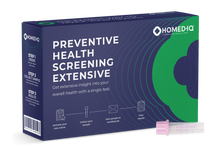Cornelia Grabmeier holds a BSc in Biology, specialising in neurobiology, from Ludwig Maximilian University of Munich, and is currently pursuing an MSc in Management, Policy Analysis and Entrepreneurship in Health and Life Sciences at Vrije Universiteit Amsterdam. She has completed several research internships, including at the Technical University of Munich Hospital, where she investigated the effects of anaesthetic agents on sleep-wake cycles, and at the Leiden University Medical Centre, where she developed a sandbox for digital health technologies. Cornelia is passionate about making science accessible to a wide audience and inspiring them by communicating fascinating topics. She combines her academic expertise with hands-on research experience to ensure the accuracy and clarity of her work.
Taking vitamin D and magnesium together?
The importance of vitamins and minerals is becoming increasingly recognized today. But combinations and their interactions are also in focus—such as in the case of vitamin D and magnesium. So is it actually useful to take vitamin D together with magnesium? – Science says: to achieve the full effect of vitamin D, an adequate supply of magnesium is important, as magnesium helps convert vitamin D into its active form. This article explains in detail what vitamin D and magnesium are, how they work in the body, and whether it really makes sense to take them together. Finally, you’ll find recommendations on how much vitamin D and magnesium your body needs.
Table of Contents
- Overview of vitamin D
- Overview of magnesium
- The interaction between vitamin D and magnesium
- How much vitamin D and magnesium should I take?
- Summary
Overview of vitamin D
Vitamin D is a fat-soluble vitamin that performs many important functions in the body. The human body can primarily produce vitamin D with the help of sunlight. UVB rays from sunlight stimulate the production of vitamin D in the skin, which is why sun exposure is considered the most important source of this essential vitamin. However, it is not always easy to get enough sunlight—especially in the winter months or in regions with low sun exposure, where supplements can be used. In addition to sunlight and supplements, there are also some foods that provide valuable amounts of vitamin D. Oily fish in particular, as well as egg yolks, cheese, and beef liver, contain small amounts of vitamin D (Harvard Health Publishing, 2021, Harvard T.H. Chan, 2023).
What is vitamin D important for?
Vitamin D plays an important role in a wide range of functions and processes in the body, including:
-
Cognitive health:
Research shows that low blood levels of vitamin D are associated with cognitive decline. However, further studies are needed to determine the benefits of vitamin D supplementation for cognitive health (Mayo Clinic, 2023). -
Bone, muscle, and dental health:
Vitamin D promotes the absorption of calcium and phosphate, which are essential for the health of bones, muscles, and teeth (NHS, 2020). -
Support of the immune system:
Studies show that a vitamin D deficiency may increase the risk of autoimmune diseases and infections (Aranow C., 2011). -
Mood regulation:
Regarding vitamin D and its impact on mood and mental health, study results are currently inconsistent, and further research is needed (Huiberts, L. M., & Smolders, K. C., 2021). -
Reduction of inflammation:
Vitamin D has been shown to help reduce inflammation in the body. It lowers pro-inflammatory substances and increases anti-inflammatory substances, as demonstrated by a reduction in CRP levels (Krajewska, M., 2022).
Overview of magnesium
Magnesium is an essential mineral that performs numerous vital functions in the body. Since the human body cannot produce magnesium on its own, it must be obtained through food. Good sources of magnesium include almonds, soy milk, cooked spinach, brown rice, salmon, and bananas. In certain cases—such as one-sided diets or increased needs—taking supplements may be advisable to prevent a deficiency (Harvard T.H Chan, 2023).
What is magnesium important for?
Magnesium plays an important role in a wide range of functions and processes in the body. It is required for more than 300 biochemical reactions in the body.
-
Maintaining normal nerve and muscle function:
Magnesium is important for the function of muscles and nerves, as it is involved in the transmission of nerve impulses and muscle contraction (Fiorentini D, 2021). -
Support of the immune system:
Magnesium is essential for optimal immune function and the regulation of inflammation. A deficiency can lead to temporary or permanent impairments of the immune system (Ashique, S. et al., 2023). -
Maintaining a regular heartbeat:
Magnesium plays a key role in regulating heart rhythm. Studies show that adequate magnesium intake is associated with a lower risk of cardiovascular disease (Fiorentini D, 2021). - Bone health: Magnesium contributes to the formation and maintenance of bones by helping regulate calcium, which is important for bone density.
-
Regulation of blood sugar levels:
Magnesium influences insulin sensitivity and helps regulate blood glucose levels. A study showed that magnesium supplementation reduces insulin resistance and improves blood sugar control indicators in patients with type 2 diabetes (ELDerawi, W. A. et al., 2018). -
Support of energy and protein production:
Magnesium is involved in more than 300 enzymatic reactions that contribute to energy production and protein metabolism in the body. It is especially important for the production and utilization of ATP (Tardy, A. L. et al., 2020).
Source: MedlinePlus, 2023
Would you like to check your vitamin D or magnesium levels?
With blood tests from Homed-IQ, you can receive detailed information about whether your levels are within the normal range or if you should take steps to improve your health. The Vitamin D Test and Magnesium Test allow you to check your values conveniently from home. Simply collect a small blood sample using a finger prick, send it by post to our ISO-certified laboratory, and receive the results in a clear and easy-to-understand lab report online.
Would you like to check more than just your vitamin D level? The Vitamin Deficiency Test measures the levels of vitamin D, vitamin B12, and folic acid (vitamin B9)—ensuring your body is supplied with all the essential vitamins needed to optimally support your health.
The interaction between vitamin D and magnesium
In order for the body to properly use vitamin D, magnesium is essential. Scientific studies show that these two nutrients can influence each other. Vitamin D is mainly produced with the help of sunlight when it hits the skin. When UVB rays (ultraviolet rays) reach the skin, 7-dehydrocholesterol is converted into a precursor of vitamin D (pre-vitamin D3). However, this vitamin D is initially inactive and cannot yet be used by the body. It must first be converted into its active form in two steps: first in the liver, then in the kidneys. Magnesium plays a key role in activating vitamin D (Uwitonze, A. M., 2018). In one study, participants who received magnesium together with vitamin D showed higher serum levels of 25-hydroxyvitamin D (an intermediate form of vitamin D) compared to those who received only vitamin D (Cheung, M. M. et al., 2022). Only in its active form (1,25-dihydroxyvitamin D, also called calcidiol) can vitamin D fulfill its important functions and be properly utilized by the body—for example, by supporting the regulation of calcium and phosphate, which is crucial for bone health (NIH, 2021).
How much vitamin D and magnesium should I take?
The following tables show the recommended daily intake for vitamin D and magnesium. However, it is important to know your individual vitamin D and magnesium levels, as an overdose of these nutrients can be harmful. Generally, the daily requirement for vitamin D can be met through adequate sunlight exposure and a balanced diet, and magnesium needs can usually be covered naturally through a varied diet. When taking supplements, caution is advised, and a doctor or nutritionist should always be consulted to avoid potential health risks.
Vitamin D
The ideal amount of vitamin D can vary depending on age, sex, place of residence, season (and therefore sun exposure), and overall health status. However, there are general recommendations that can serve as a guideline.
| Age | Recommended daily dose (Vitamin D) in micrograms (mcg) and International Units (IU) (women and men) |
|---|---|
| 0–12 months | 10 mcg / 400 IU |
| 1–13 years | 15 mcg / 600 IU |
| 14–18 years | 15 mcg / 600 IU |
| 19–50 years | 15 mcg / 600 IU |
| 51–70 years | 15 mcg / 600 IU |
| > 70 years | 20 mcg / 800 IU |
Source: NIH, 2024
Magnesium
The ideal amount of magnesium may vary depending on age, sex, activity level, diet, and overall health. Nevertheless, there are general guidelines that can be used as a reference.
| Age | Recommended daily dose (Magnesium) in milligrams (mg) – Men | Recommended daily dose (Magnesium) in milligrams (mg) – Women |
|---|---|---|
| 0–6 months | 30 mg | 30 mg |
| 6–12 months | 75 mg | 75 mg |
| 1–3 years | 80 mg | 80 mg |
| 4–8 years | 130 mg | 130 mg |
| 9–13 years | 240 mg | 240 mg |
| 14–18 years | 410 mg | 360 mg |
| 19–30 years | 400 mg | 310 mg |
| 31–50 years | 420 mg | 320 mg |
| > 51 years | 420 mg | 320 mg |
Source: NIH, 2022
Summary
Vitamin D and magnesium are two essential nutrients that perform important functions in the body. The interaction between these two nutrients is crucial for optimal health, as magnesium supports the activation of vitamin D. A balanced diet that provides sufficient amounts of both nutrients is important—for example, for maintaining healthy bones and muscles and supporting overall well-being. If needed, supplementation with vitamin D and magnesium can be beneficial, especially when dietary intake is insufficient. If you have questions about the correct dosage or potential interactions, it is best to consult your doctor or a qualified nutritionist.









